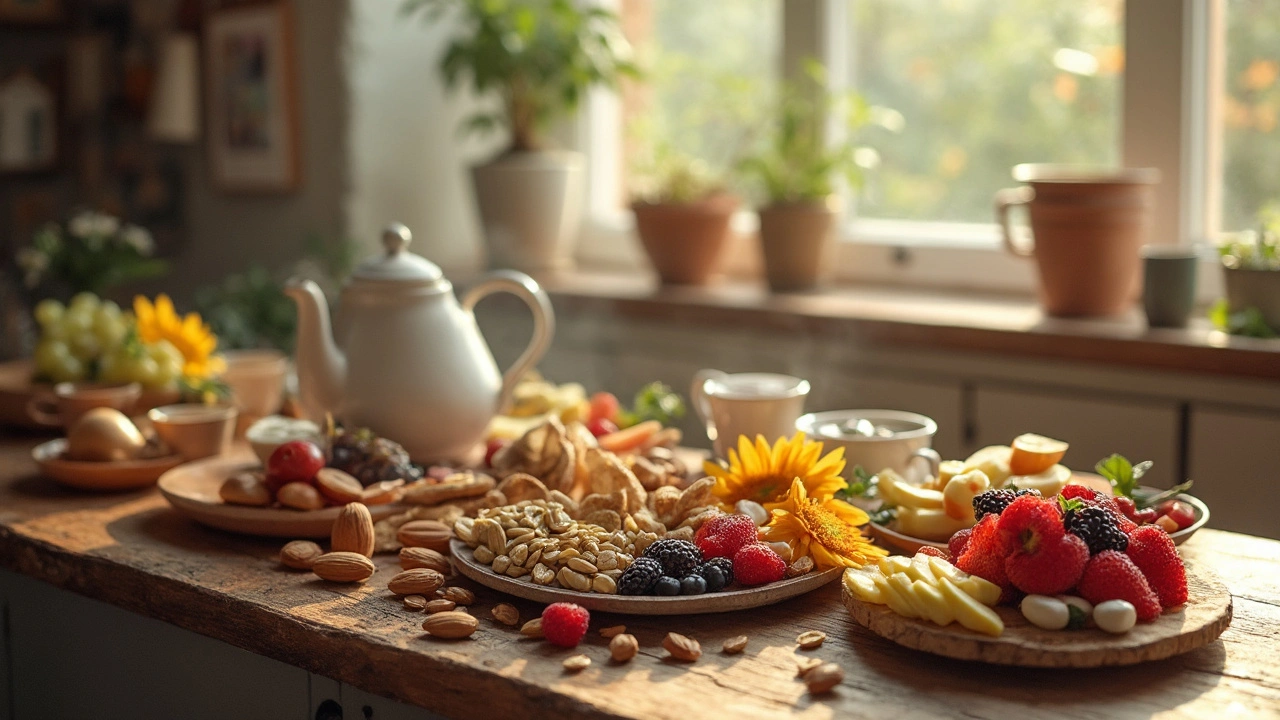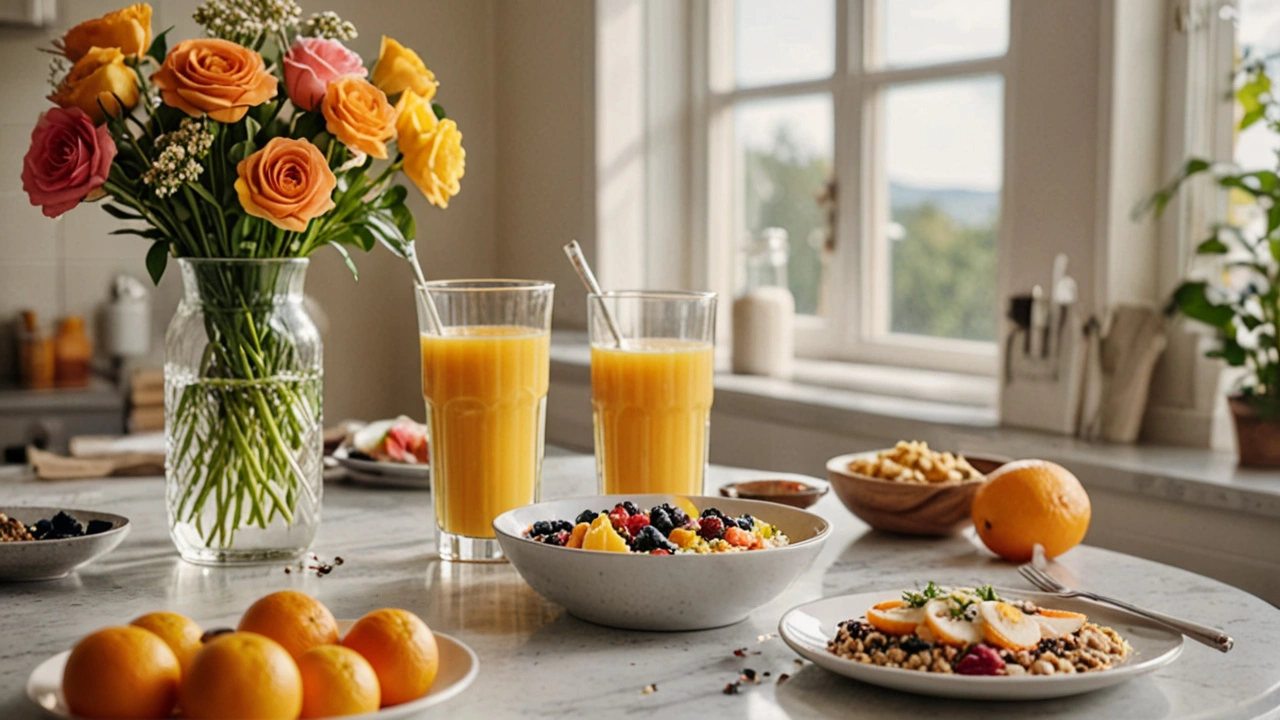Balanced Diet: Your Everyday Guide to Simple, Healthy Eating
Ever wonder what a balanced diet really means? It’s not about strict rules or boring meals. A balanced diet simply means eating a variety of foods that give your body what it needs to function well—from energy to vitamins and minerals. Getting this right helps you feel good, avoid energy crashes, and keep your body in top shape.
First off, aim to get a mix of the big food groups: fruits, veggies, whole grains, proteins, and healthy fats. Not every meal needs to be perfect, but over the day, try to cover these bases. For example, fresh veggies and fruits bring fiber and vitamins, whole grains offer steady energy, while lean proteins like chicken or beans help build and repair tissue.
How to Build Balanced Meals Easily
Here’s a quick way to think about your plate: fill half with veggies and fruits, a quarter with a good protein, and a quarter with whole grains. Add a little healthy fat, like olive oil or nuts, and you’re on the right track. Don’t stress over portions too much at first; focus on variety and listen to your hunger cues.
Drinks matter, too. Water should be your go-to beverage throughout the day. Cut down on sugary drinks and limit alcohol because they add empty calories and can mess with your energy and mood.
Tips for Sticking to a Balanced Diet Without Feeling Deprived
Changing eating habits can be tough, but small steps make a difference. Try swapping white bread for whole grain or adding a serving of steamed veggies to your favorite meal. Planning snacks like nuts or fruit helps you avoid grabbing unhealthy options when hunger hits. And remember, it’s okay to enjoy treats now and then; balance doesn't mean perfection.
Making a balanced diet part of your life doesn’t have to be complicated. Focus on fresh, whole foods mostly, keep hydrated, and give yourself time to adjust. With consistency, you’ll notice better energy and overall wellness without the stress. What’s one simple tweak you can try with your next meal?
Healthy Snacks in a Balanced Diet: A Tasty Guide
- Leonard Trimble
- Feb, 24 2025
Healthy snacks can play a crucial role in maintaining a balanced diet, providing vital nutrients without the extra calories. Snacking smartly can keep your energy levels stable throughout the day while preventing overeating during main meals. From nuts and seeds to fruits and yogurt, there's a variety of options to suit your taste and nutritional needs. Understanding portion sizes and choosing snacks with health benefits can make all the difference. This article dives into how to incorporate healthy snacks into your daily routine effectively.
Learn MoreHealthy Breakfast Ideas to Nourish Your Body
- Desmond Marchbanks
- Jul, 16 2024
Breakfast is the most important meal of the day, setting the tone for your energy and mood. This article explores various nutritious and healthy breakfast options to help nourish your body. Learn about the benefits of different ingredients and get practical tips for incorporating them into your daily routine.
Learn MoreUltimate Guide to Healthy Snacks: Nutritional Powerhouses for Your Diet
- Josephine Lewitt
- Feb, 12 2024
In today's fast-paced lifestyle, maintaining a nutritious diet can be challenging, particularly when it comes to snacking. This article dives into the world of healthy snacks, identifying options that not only satisfy hunger pangs but also provide vital nutrients to support overall health and well-being. From understanding the importance of balancing macronutrients to exploring a variety of snack options across different food groups, this guide is packed with practical, science-backed advice to revolutionize your snacking habits. Get ready to discover tasty, nutritious snacks that can easily be integrated into any lifestyle.
Learn MoreWhy a Healthy Breakfast is Essential for a Balanced Diet
- Arlo Sterling
- Jul, 21 2023
Starting your day with a healthy breakfast is a key element of a balanced diet. It jumpstarts your metabolism, helping you burn calories throughout the day and supplying you with the necessary energy to get work done. Breakfast also helps in maintaining stable blood sugar levels, which in turn impacts our mood and concentration. Skipping breakfast can lead to overeating later in the day, contributing to weight gain and health issues. Therefore, having a healthy breakfast is not just a good start to your day, it's a vital part of overall wellness.
Learn More


